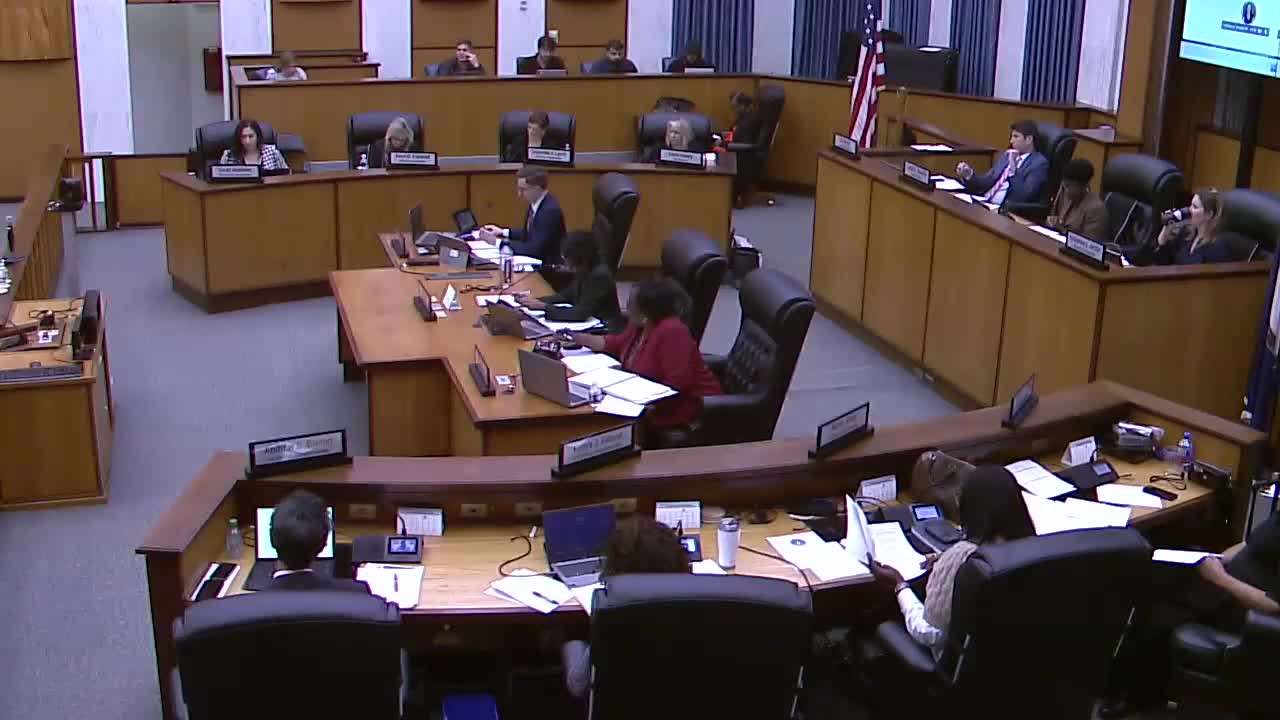Richmond council adopts residential rental inspection ordinance after months of advocacy
Get AI-powered insights, summaries, and transcripts
Subscribe
Summary
After hours of testimony from tenants, public-health officials and tenant organizers, Richmond City Council voted unanimously to adopt ordinance 2025-161 establishing a district-based residential rental inspection program. Councilmembers emphasized the need for a funded implementation plan with tenant protections to avoid displacement.
Richmond City Council voted to adopt ordinance 2025-161 on Nov. 11, 2025, creating a residential rental inspection program designed to allow periodic, proactive inspections of rental properties within council-designated districts. The ordinance directs city staff to create district boundaries, develop standard operating procedures, and return to council with implementation details, including resources and timelines.
The ordinance follows extensive public testimony. Gwen Otwell, representing Richmond for All, said the program is “essential” to prevent displacement and ensure safe homes: “We cannot have a serious conversation about addressing displacement without also discussing the safety of the buildings Richmond residents occupy,” she said. Bob Becker of the Richmond-Henrico Health District told council the evidence shows proactive inspections can prevent lead poisoning and other health harms.
Supporters — including tenant organizers, public-health professionals and building-code personnel — described recurring problems with mold, pests, exposed wiring and other hazardous conditions and argued the program will protect vulnerable residents who often fear retaliation if they report violations. Danny Smith, a renter and housing advocate, recounted a childhood experience with toxic black mold and said inspections “could prevent families from having a damaging experience like that in the first place.”
Council members who supported the ordinance repeatedly stressed that passage is only the first step. Council Member Robertson and others said the program must be funded, staffed and paired with tenant protections so that inspections do not unintentionally accelerate displacement or evictions. Robertson asked that execution plans include explicit tenant-rights safeguards and a timeline for implementation. Council Member Jones and Council Member Lynch asked to be added as patrons and urged careful collaboration with administration to ensure the program can be executed effectively.
Kevin J. Bonk, director of Planning and Development Review, presented the ordinance and said additional administrative steps are required before inspections begin, including designating district boundaries and determining resource needs. He told council that the administration supports passage and will work with council on the procedural details.
The council took a roll-call vote and the ordinance was adopted; the clerk recorded affirmative votes and the measure was declared adopted. Members instructed staff to return with implementation plans and amendments on district definitions, enforcement protocols and implementation budgets.
Next steps: staff will draft district maps, operating procedures and a budget for council review; advocates asked to be included in implementation discussions.
